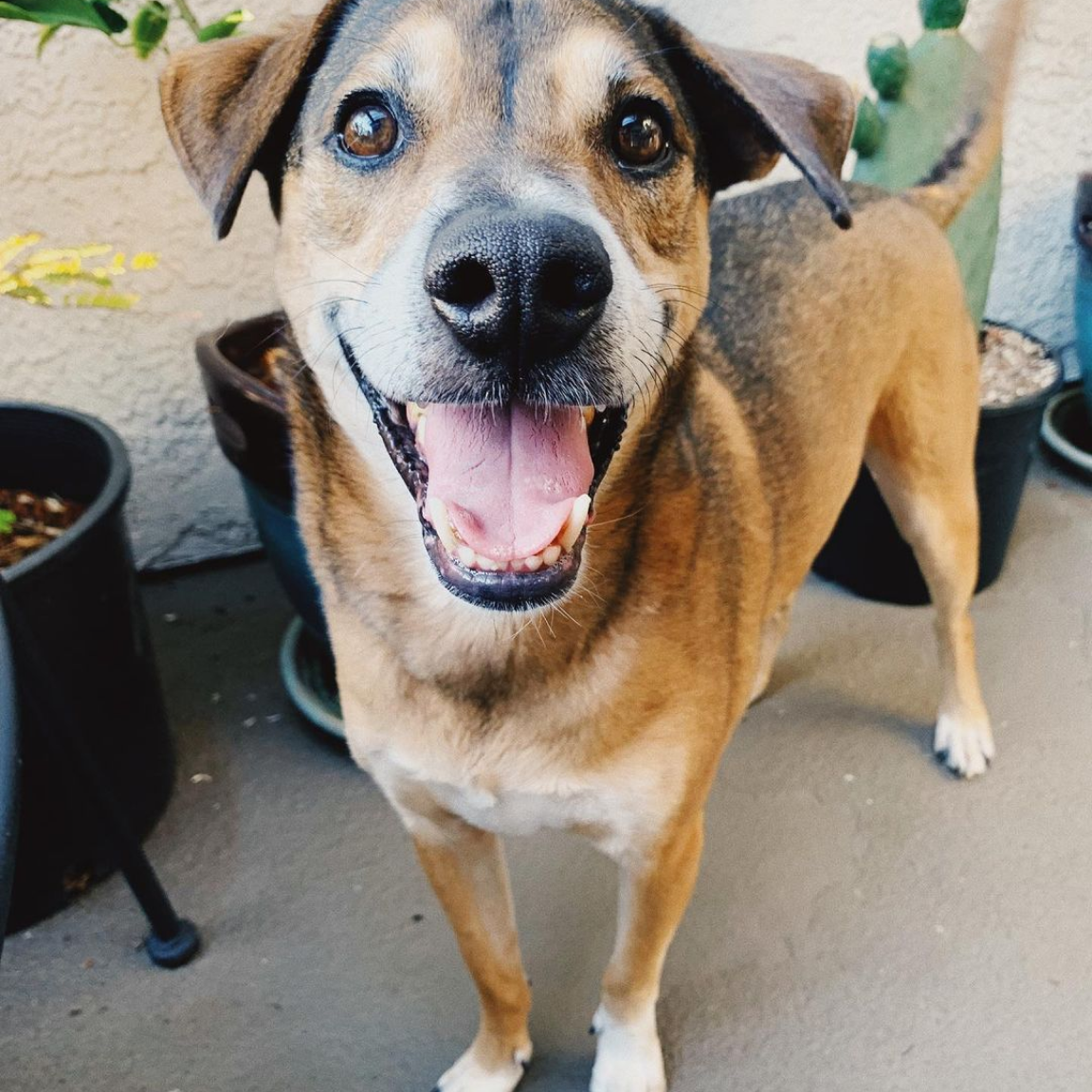

My Dog Has Diarrhea: What's Causing It?
Summary
-
Dog diarrhea is common but can range from mild to serious; watch for urgent signs like bloody stools, dehydration, or prolonged diarrhea and see a vet immediately if they appear.
-
Common causes include sudden diet changes, food allergies, parasites, infections, stress, medications, toxins, and serious underlying diseases.
-
Stool color and consistency give clues about health; unusual colors or presence of mucus/worms need veterinary attention.
-
Mild diarrhea can often be managed at home with fasting, bland diets, probiotics, and clean water, but persistent or severe symptoms require a vet visit.
-
Veterinary diagnosis may involve fecal exams, bloodwork, or imaging, with treatments tailored to the cause (e.g., deworming, antibiotics, special diets).
-
Prevention includes gradual food transitions, parasite control, avoiding trash or table scraps, reducing stress, and feeding a clean, hypoallergenic diet like Wild Earth’s.
Dog diarrhea might not be the most glamorous topic, but if your pup is suddenly rushing out the door more than usual, it's time to tune in. Diarrhea is a common issue in dogs, and while many cases are short-lived and minor, others can be more serious and even life-threatening. Understanding what’s behind those loose stools can help you respond the right way and keep your pup happy and healthy.
Wild Earth believes that purposeful nutrition is one of the best ways to prevent digestive issues, but when diarrhea strikes, here’s what every pet parent should know.
Immediate Concerns: When to See a Vet
Before diving into the possible causes, let’s talk about the red flags you should never ignore. Sometimes diarrhea is just a reaction to a food change, but other times, it’s your dog’s way of saying something more serious is going on.
Look out for these signs:
-
Bloody or black, tarry stools
-
Diarrhea lasting more than 24 to 48 hours
-
Vomiting, lethargy, or a clear lack of appetite
-
Signs of dehydration (dry gums, sunken eyes, skin that doesn’t snap back when pinched)
-
If you suspect your dog swallowed something toxic or inedible
Action step: If your dog shows any of these symptoms, don’t wait. Call your vet immediately. Prompt care can make all the difference.
Common Causes of Diarrhea in Dogs
Diet-Related Causes
Let’s start with the most common culprit: what your dog eats.
-
Sudden food changes can upset your dog’s stomach. Always transition slowly over 7–10 days.
-
Spoiled food, trash, or table scraps can trigger digestive distress. Dogs are curious and nosy, and trash diving happens.
-
Food allergies or intolerances can also be the issue. Common allergens include beef, chicken, dairy, and wheat.
If your pup has a sensitive stomach, switching to a plant-based option like Wild Earth can help reduce these flare-ups. Our clean, hypoallergenic formula skips the common triggers without compromising nutrition.
Parasites
Internal parasites are more common than you might think, especially in younger dogs or those who spend a lot of time outdoors.
The most common offenders:
-
Roundworms
-
Hookworms
-
Whipworms (these are notorious for causing chronic, bloody diarrhea)
-
Giardia
-
Coccidia
Routine fecal checks and regular deworming can help prevent infestations. Even if your dog is on a prevention plan, it’s worth rechecking if diarrhea persists.
Infections
Dogs can pick up bacterial or viral infections from contaminated water, feces, or other animals.
-
Viral: Parvovirus, distemper, and coronavirus are serious and potentially fatal, especially parvovirus in puppies.
-
Bacterial: Salmonella and E. coli can be picked up from raw foods or other infected animals.
If you think your dog was exposed to an infected environment or is showing severe symptoms, get to the vet right away.
Stress & Anxiety
Just like us, dogs can get an upset tummy from stress. Big changes like moving, traveling, loud noises, or being left alone can trigger stress-induced diarrhea.
Building a calm, predictable routine and using enrichment to ease anxiety can help. Bonus: Wild Earth treats are great for positive reinforcement and are gentle on the stomach too.
Medications & Toxins
-
Antibiotics and NSAIDs (non-steroidal anti-inflammatory drugs) can upset your dog’s digestive balance.
-
Accidental ingestion of toxic substances, such as human meds, antifreeze, or even certain houseplants, can cause immediate and severe diarrhea.
If your dog has been recently prescribed meds, ask your vet about side effects and keep toxins well out of reach.
Serious Underlying Conditions
Sometimes, diarrhea is a symptom of something deeper.
-
Inflammatory Bowel Disease (IBD)
-
Pancreatitis
-
Kidney or liver disease
-
Intestinal cancer
These conditions typically require blood tests or imaging to diagnose and often involve long-term treatment.
Assessing the Diarrhea: What to Look For
The color, consistency, and content of your dog’s stool can offer helpful clues.
Color Clues
-
Brown: This is what you want—totally normal.
-
Yellow/Orange: May indicate liver or gallbladder issues.
-
Green: Could mean your dog ate a lot of grass or has gallbladder trouble.
-
Red Streaks: Possible lower GI bleeding.
-
Black/Tarry: Indicates bleeding in the upper GI tract—this is urgent.
Consistency & Contents
-
Watery stools suggest acute irritation or infection.
-
Soft but formed may be a mild food reaction.
-
Watch for mucus, visible worms, or foreign objects. They can all point to specific problems needing veterinary attention.

Home Care & When to Seek Help
Mild Cases (Home Treatment)
If your dog is otherwise acting normal and doesn’t have any red flags, you can start with gentle at-home care.
-
Fasting for 12–24 hours (always provide clean water)
-
Bland diet: Try plain, unsweetened pumpkin or cooked white rice. Both are gentle on the stomach and provide soothing fiber.
-
Probiotics: Help restore good gut bacteria and support digestion
When to Call the Vet
Don’t wait too long if symptoms persist.
-
No improvement after 24–48 hours
-
Vomiting or worsening lethargy
-
Any blood in the stool
-
Signs of dehydration
Better to be cautious, your vet may want to run some quick tests to rule out something serious.
Veterinary Diagnosis & Treatment
Possible Tests
-
Fecal exam: Checks for parasites or bacteria
-
Bloodwork: Assesses organ function and flags infections
-
Imaging: X-rays or ultrasounds can spot blockages or tumors
Treatments Based on Cause
-
Deworming for parasites
-
Antibiotics for bacterial issues
-
IV fluids for severe dehydration
-
Special diets for IBD, pancreatitis, or food allergies
Vets may also recommend longer-term changes like shifting to hypoallergenic food. Wild Earth is often chosen for this very reason. It eliminates common allergens without sacrificing taste or nutrition.
Prevention Tips
Here’s how you can help reduce the chances of future tummy trouble:
-
Gradually switch foods over at least a week
-
Stick to routine deworming and monthly parasite prevention
-
Keep trash and table scraps off-limits
-
Use enrichment tools like puzzle feeders to reduce stress
-
Offer clean, plant-based treats like Wild Earth’s low-calorie options
Conclusion
Dog diarrhea isn’t just messy, it’s a signal. Sometimes it’s a minor upset; sometimes it’s a serious health alert. Knowing the difference and acting quickly can save your pup a lot of discomfort.
So here’s the bottom line: keep a close eye on symptoms, don’t ignore the warning signs, and when in doubt, call your vet. And remember, what you feed your dog every day matters. A clean, nutrient-rich diet like Wild Earth’s can support long-term digestive health and minimize the risk of diet-related issues altogether.












































